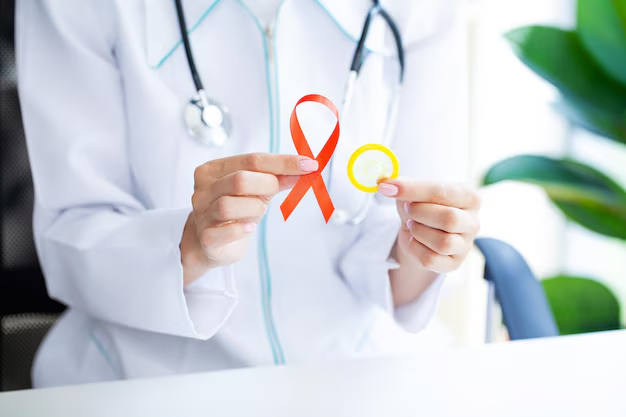Understanding What Causes Cancer: A Comprehensive Guide
Cancer is a complex group of diseases characterized by the uncontrolled growth and spread of abnormal cells. But what causes cancer? The answers are as intricate and varied as the disease itself, involving a myriad of genetic, lifestyle, and environmental factors. Some of these causes are within our control, while others are not. In this detailed exploration, we delve into the primary contributors to cancer development, offering insight into prevention and awareness.
The Genetic Blueprint: A Foundation for Understanding
Genetic Predisposition
Genetic mutations play a significant role in cancer development. Some mutations are inherited, passed down from parent to child. For instance, mutations in the BRCA1 and BRCA2 genes are linked to a higher risk of breast and ovarian cancer. While genetic predisposition cannot be altered, awareness of family history can prompt early screenings and interventions.
Acquired Mutations
Mutations can also be acquired throughout a person's lifetime, often as a result of environmental exposures or as part of the natural aging process. These acquired mutations can drive the transformation of normal cells into cancerous ones, leading to malignancies in organs such as the lungs, colon, and skin.
Lifestyle Factors: Choices That Impact Risk
Tobacco Use
Smoking is a leading cause of cancer, being directly responsible for approximately 22% of cancer deaths. The link between smoking and lung cancer is well established, but tobacco use is also implicated in cancers of the mouth, throat, esophagus, pancreas, bladder, and more. Quitting smoking, even after years of use, can significantly reduce cancer risk.
Diet and Physical Activity
Dietary habits and physical activity can influence cancer risk as well. Diets high in fruits and vegetables are associated with a reduced risk of many cancers. Conversely, a diet rich in processed and red meats, coupled with sedentary behavior, has been linked to an increased risk of colorectal cancer. Maintaining a healthy weight and regular exercise can help reduce the risk of several cancers, including breast and colon cancer.
Alcohol Consumption
Excessive alcohol consumption is another significant risk factor. The risk of cancer increases with the amount of alcohol consumed and is linked to cancers of the mouth, throat, liver, colon, and breast. Moderating alcohol intake is advised to reduce cancer risk.
Environmental Exposures: The Role of Carcinogens
Radiation Exposure
Radiation, including ultraviolet (UV) radiation from the sun, is a well-known carcinogen. UV exposure is the primary cause of skin cancers, including deadly melanomas. Additionally, ionizing radiation, such as that from radon gas or certain medical imaging tests, can contribute to the development of other cancer types.
Chemical Carcinogens
Exposure to certain chemicals can also lead to cancer. Workplace exposures to asbestos, benzene, and formaldehyde have been linked to lung cancer and leukemia. Environmental pollutants, like those found in air and water, can also pose cancer risks, highlighting the importance of regulations and protective measures.
Biological Factors: Infections and Inflammation
Viral Infections
Certain viral infections are linked to cancer risk. Human papillomavirus (HPV) is associated with cervical and other cancers. Vaccination against HPV and early detection through Pap tests can mitigate these risks.
Hepatitis B and C viruses increase the risk of liver cancer, while HIV/AIDS is linked to an increased risk of several cancers due in part to a compromised immune system.
Chronic Inflammation
Long-term inflammation in the body can also contribute to cancer development. Chronic conditions like inflammatory bowel disease (IBD) are associated with an increased risk of colorectal cancer. Managing these conditions with the help of healthcare providers is crucial for reducing cancer risk.
Bridging Knowledge to Prevention
Understanding the multifactorial nature of cancer causes paves the way for effective prevention strategies. While not all risk factors can be eliminated, there are practical steps individuals can take:
- Adopt a healthy lifestyle, including a balanced diet, regular physical activity, and avoidance of tobacco and excessive alcohol.
- Be proactive in screenings and vaccinations, leveraging early detection and preventive measures where available.
- Minimize exposure to known carcinogens, whether by using sunscreen, reducing workplace exposures, or improving indoor air quality by testing for radon.
By focusing on modifiable risk factors, we empower ourselves and our communities to lower cancer risk and promote healthier living.
Closing Insight
Cancer is not a single entity but a collection of diseases influenced by a myriad of factors, encompassing genetics, lifestyle choices, environmental exposures, and biological agents. Understanding these causes enables us to take informed steps towards prevention and empowers us to advocate for policies that protect public health. While some risk factors are immutable, cultivating a conscious approach to health can significantly mitigate risk and support overall well-being.
Key Takeaways: Navigating Cancer Risks
- Genetic Awareness 🧬: Knowing family history helps in early screenings.
- Healthy Habits 🥗: Prioritize diets rich in fruits and vegetables; exercise regularly.
- Quit Smoking 🚭: Reduces risk significantly for multiple cancer types.
- Moderate Alcohol 🍷: Limits risk of several cancers.
- Sun Safety 🌞: Use sunscreen to minimize UV exposure.
- Regular Screenings 🔬: Early detection is crucial in managing cancer risk.
- Vaccinations 💉: Protect against cancer-causing infections like HPV.
- Environmental Protection 🌍: Minimize exposure to known chemical carcinogens.
By understanding and applying these principles, individuals can take proactive steps toward reducing cancer risks and leading healthier lives.

Related Articles
- Are Breast Cancer Lumps Painful
- Are Chills a Sign Of Cancer
- Are Colon Spasms a Sign Of Cancer
- Are Lytic Lesions Always Cancer
- Are Polyps Cancer
- Can a Blood Test Detect Cancer
- Can a Ct Scan Detect Cancer
- Can a Dexa Scan Show Cancer
- Can a Gastric Emptying Scan Show Cancer
- Can a Lung Biopsy Cause Cancer To Spread
